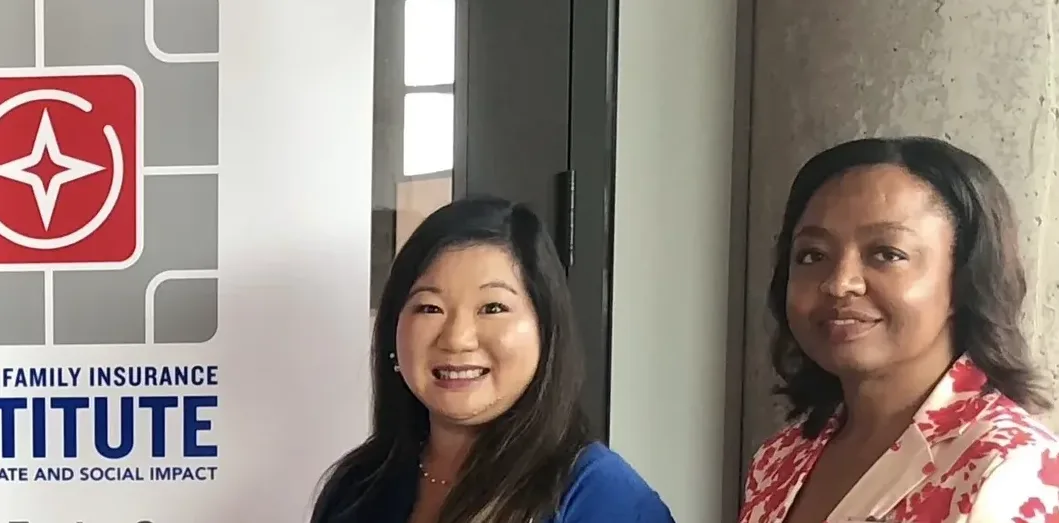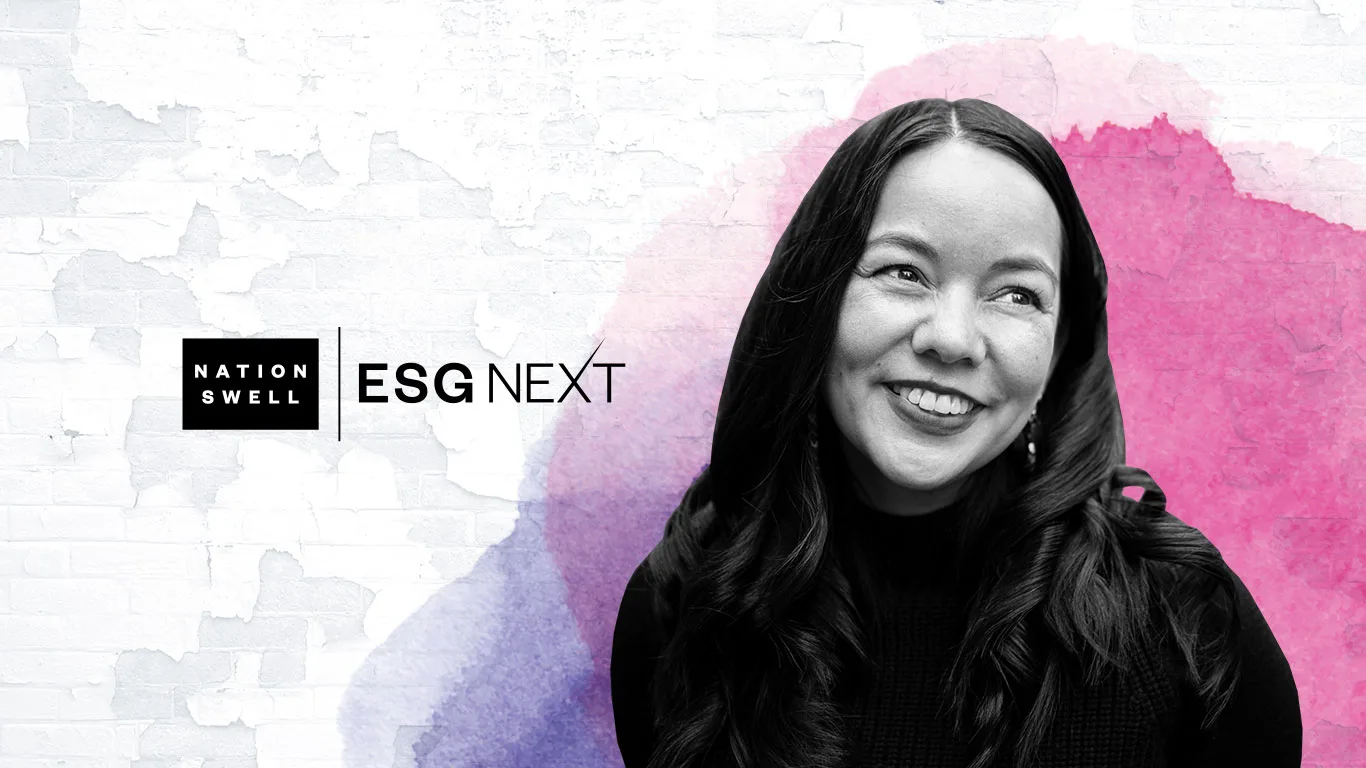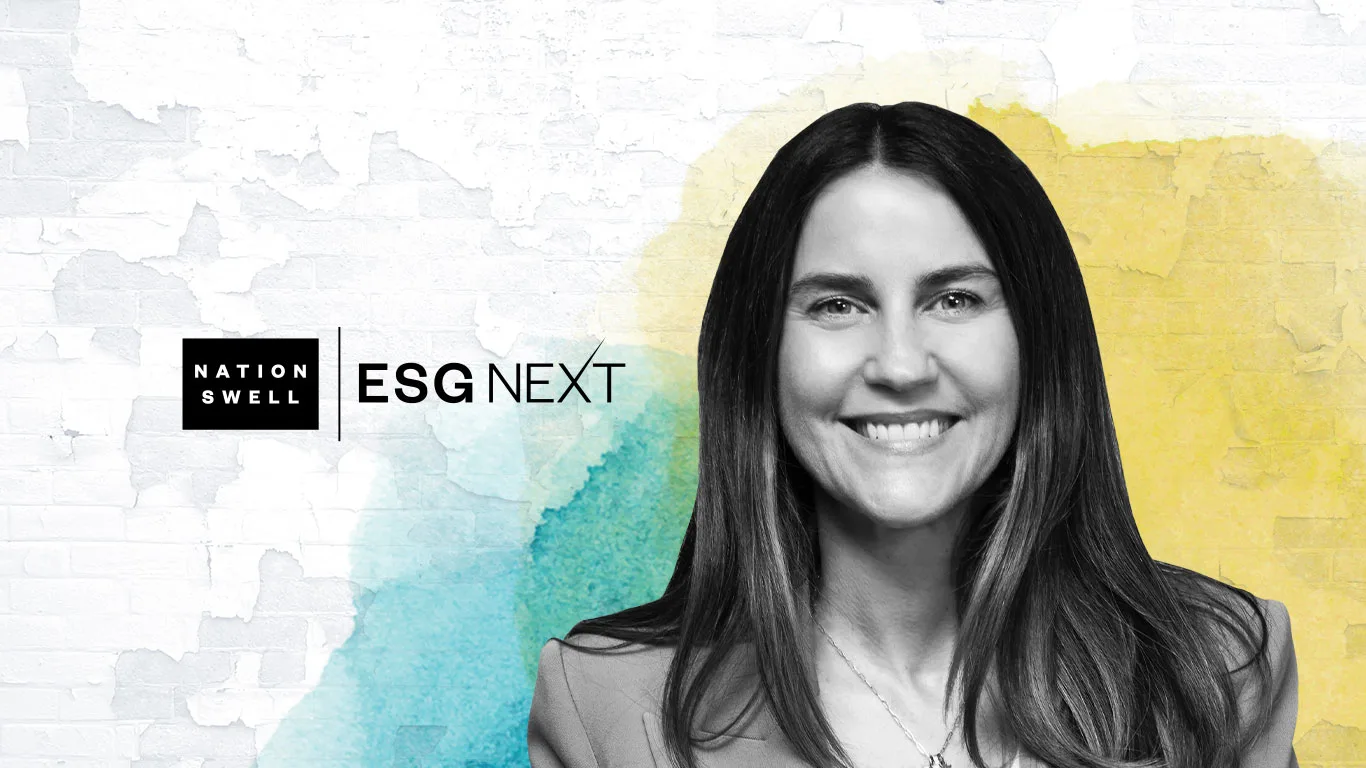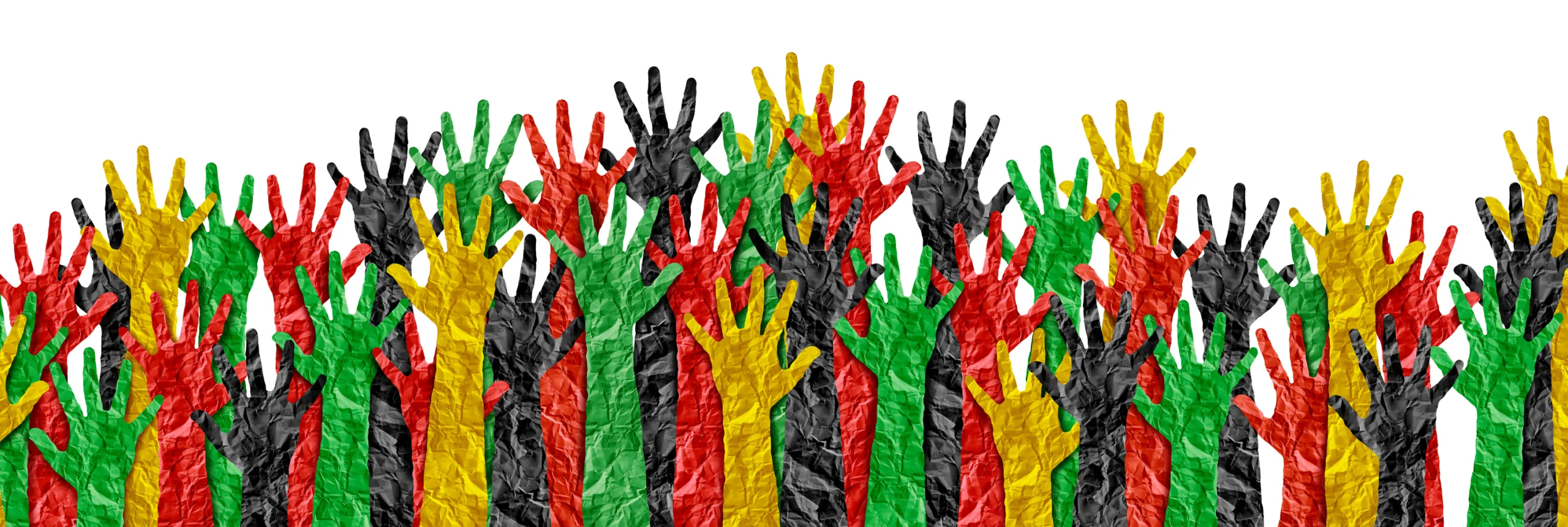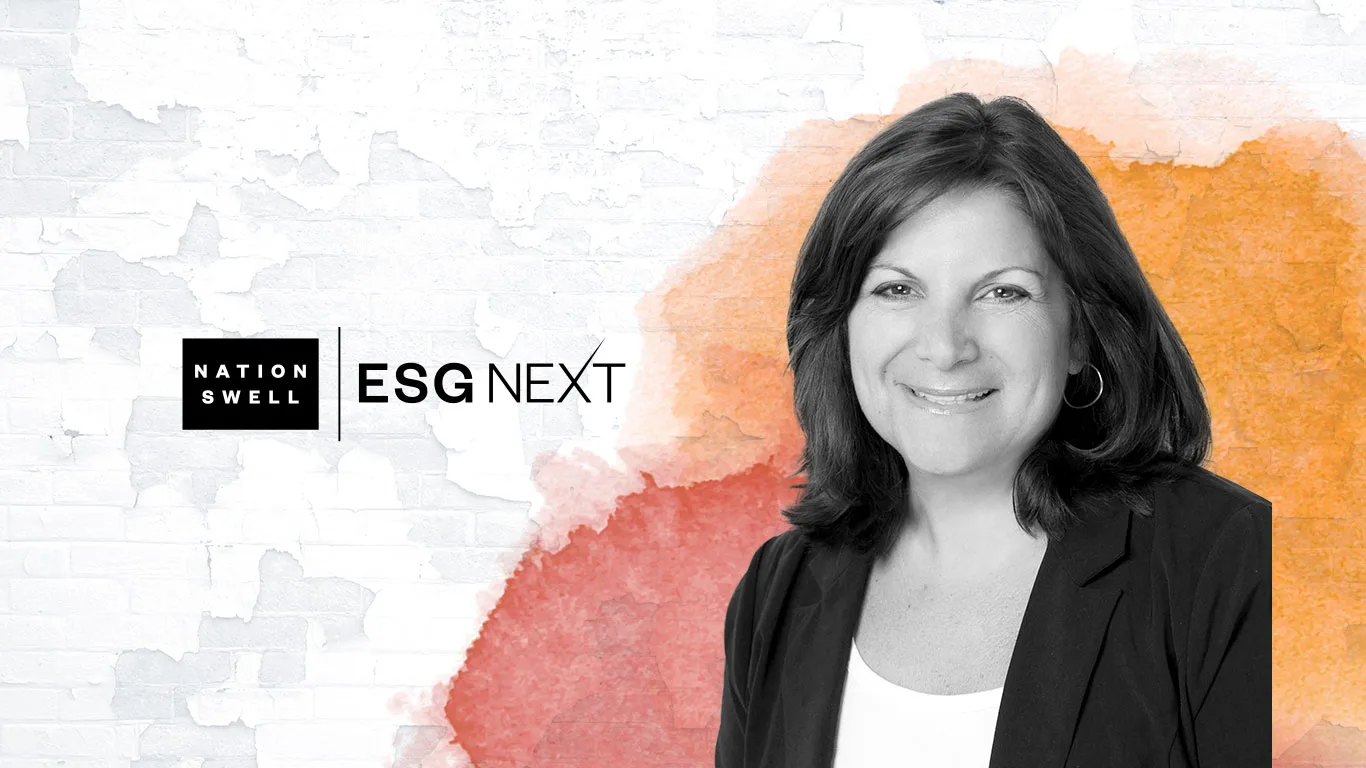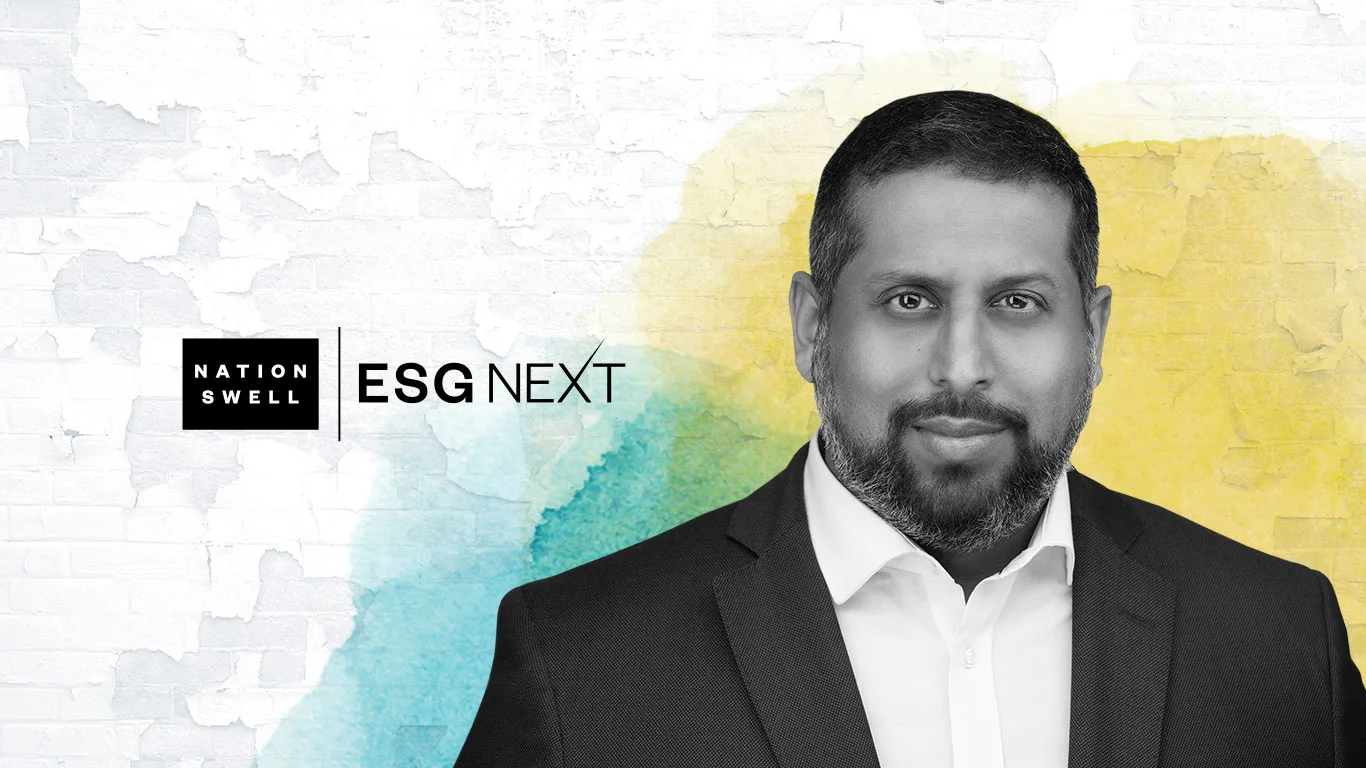When Shayna Hetzel was in college, she wanted to be a biochemist, examining the intricate relationship between carbon atoms and amino acids and studying the ways they come together to form the foundations of life. Although she didn’t end up pursuing a career in science, Shayna — the Community and Social Impact Investment Director at the American Family Insurance Institute for Corporate and Social Impact — now works alongside her longtime colleague and partner, Social Impact Investment Director Nyra Jordan, to identify and facilitate the bonds that strengthen communities and drive prosperity for everyday people.
On October 3, 2023 the American Family Insurance Institute for Corporate and Social Impact celebrated its 5-year anniversary. Launched in 2018 after a two-year benchmarking period, the Institute was initially conceptualized as a way to expand upon both the successes of American Family Insurance’s multi-limited partner model, American Family Ventures, and the American Family Insurance Dreams Foundation, which supports nonprofit organizations through grants and employee and agent engagement programs. According to Shayna, its earliest ambition took the form of a question: How can we go bigger and bolder for equity?
At the urging of then-CEO Jack Salzwedel, Peter Gunder — who was serving as American Family Insurance’s Chief Business Development Officer at the time — formed the Institute by assembling a small team of people, led by Shayna and Nyra, whose primary goal would be to expand the capacity of entrepreneurs and risk-takers to make a difference in their communities.
Today, the Institute operates out of the Spark building in Madison, Wisconsin, and pursues its long-term mission of closing equity gaps in America by forging partnerships with local changemakers, leaders, and entrepreneurs focused on building scalable social enterprises in four key investment areas: economic empowerment & justice reform, healthy youth development, equity in education, and resilient communities.
Even in the Institute’s earliest days, Nyra says, the members of her team were always disciplined about maintaining a community-minded and -centered approach to the work that they were doing.
“As a corporation, we didn’t want this to be something where we said, okay, here’s American Family Insurance and we’ve created this thing where we’re going to show you how to do social impact and tell you how you engage in your communities,” she said. “We wanted to make sure we didn’t tarnish relationships, and that we were not approaching this work with hubris.”
The need for deeper community investment was made explicit by a report released by the Wisconsin Council on Children and Families (now Kids Forward) in 2013 called “Race to Equity,” which revealed widespread disparities across race and ethnicity on nearly every social economic measure, including education, homeownership, and wage earning. According to Nyra, that report’s release was partly what inspired leadership to begin researching issues like mass incarceration and other topics that were “a little less comfortable for a midwest insurance company” in an effort to redress some of the social inequities it had identified.
“I think for us, a company that had been giving millions of dollars to communities, for this report to come out and say that these gaps existed so deeply was just astounding,” Nyra said. “I think that was one of the points where leadership asked, ‘What can we do differently?’”
The creation of the Institute was as much an answer to that question as the appointment of two women of color to its helm. With more than 30 years of combined experience at American Family Insurance, Nyra, a Black woman, and Shayna, a Korean-born, rurally-raised woman, look wholly unlike the traditionally white, male faces usually that typically make up corporate leadership teams. And on top of being women of color, both leaders come from professional backgrounds that are widely considered to be untraditional by venture capital standards.
“Nyra and I are not the hardened finance MBA folks who sit in Silicon Valley,” Shayna told NationSwell. “We really come from community-first backgrounds, and on top of that we do happen to be, in my very biased opinion, badass women of color. It’s really not the typical story.”
Taking a community-centered approach
That community-centered approach — their willingness to become deeply entrenched in the work and the communities they serve — is the secret sauce that differentiates Shayna’s and Nyra’s leadership, says Lauren Usher, a partner and Vice President at the startup accelerator gener8tor. Since the Institute catalyzed gener8tor’s gBETA social impact programming for early stage social entrepreneurs in the fall of 2018, the platform has worked to close equity gaps in the K-12 education system and justice tech by working primarily with founders who are either formerly incarcerated themselves or working to support returning citizens through their ventures. Her relationship with Shayna and Nyra — and the Institute — “…has been one of co-creation and intentionality from the beginning,” Lauren told NationSwell.
“There have been many challenging moments that Shayna and Nyra have not shied away from, but seem to embrace as problem-solvers and creative minds,” Lauren said. “In both programs, we are working with underestimated populations like women and people of color who have been excluded from the startup and venture capital space for so long. Several founders have commented that Shayna and Nyra are such genuine people, and the founders didn’t know that high-level executives from large corporations could be so caring and helpful.”
Since 2018, gener8tor’s work has supported 57 social enterprises in intensive programming focused on business coaching and subject matter mentorship, network building, and fundraising. All told, those businesses have created nearly 100 jobs in their respective communities and raised approximately $35.4 million in funding through grants and investments. On top of all of that, Lauren estimates that 58 percent of these companies are led by women, and that 72 percent are led by people of color — figures that, she says, serves as just two examples of “the immense talent and hard work that the Institute’s work supports.”
Establishing trust with partners on the ground
Engaging deeply with communities and trusting local organizations to lead the way has always been a critical and necessary component of the Institute’s philosophy: Early ideas about building out unique, Institute-owned and operated programs were quickly scrapped in favor of pursuing the opportunities already being led by trusted partners on the ground.
“We realized early on that the best role we could be in was that of a linked-arm partner and a financing catalyst for those organizations to have and build their own brands and programs that were then sustainable through their organization instead of having Institute-branded, owned, and operated courses and cohorts,” Shayna says. “Most of our portfolio is based on finding those already doing that.”
The next step was building trust: formalizing relationships with community partners that would ultimately be supportive and generative for a larger ecosystem, and never feel extractive.
Dr. Roxie Hentz — the CEO of CEOs of Tomorrow, and a community partner of the Institute since 2018 who now leads youth social impact entrepreneurship incubators and programming — says that her company’s relationship with the Institute goes “far beyond that of a financial partner… the team has not only become woven into the fabric of our youth programming, but is also a part of the CEOs of Tomorrow family.”
She said that both women have been “true assets to the community,” citing Nyra’s dedication to youth mentorship in particular.
“She has consistently donated her time and expertise as a lead judge for the past nine Teen Pitch & Launch Events — our signature event that showcases aspiring teen entrepreneurs as they launch new business ideas,” she says.
According to Shayna, that on-the-ground dedication is an integral part of the Institute’s strategy to act as champions for community partners. She describes having what she refers to as “frontman energy” for every single partner in the Institute’s portfolio — an enduring belief in their status as “visionaries, grinders, and equity champions,” that makes it impossible to choose favorites from the pack.
“We are not the kind of partner that writes a check and walks away,” she says. “We are talking to the participants, mentoring them, learning from them, attending their showcases. Nyra and I and our teams are on the road building those deep relationships — it’s why we don’t have 400 partners a year. To go deep really means that we’re on the ground with our partners.”
While being two women of color attempting to nimbly and efficiently bring an ambitious vision to life is not without its challenges, Shayna says that being one of the “onlies” seated around the table has also contributed to a new understanding of how she is able to relate to and serve the communities she represents.
“[Being a woman of color] has ultimately unlocked this belief that my identity and lived experience — and my proximity to being underestimated and underrepresented — is actually my seat of power,” she said.
Using collaboration as a north star
The alienating nature of being one of the only women of color seated at the table only further highlights the need for and value of collaboration — the true listening, following, and leading required in order to create shared prosperity and dismantle the systems perpetuating injustice. In addition to partnerships with community leaders, entrepreneurs, and other impact investors, the Institute has also teamed up with Annie E. Casey Foundation, National Domestic Workers Alliance, Pivotal Ventures, Working for Women, and NationSwell to form the Case for Childcare Collaborative, whose members have spent the last year engaging in research to understand the widespread challenges, opportunities, and solutions that exist in making the business case for childcare.
While neither woman is certain about what the next five years of the Institute’s future will look like, Nyra says a primary focus will be ensuring that the model that they’ve created will continue to honor community needs — and that her team will never “…lose this humility of truly, truly believing in, empowering, and funding lived experience.” She added that she hopes the Institute will emerge as a standard-bearer in the establishment of internal teams led by and built with women of color — one that might serve as an aspirational north star for other corporations and impact investors in the years to come.
“Having teams led by women of color is actually not just a differentiator because it’s different, but because it’s more prosperous and inclusive and builds more equity on the outcome,” she said.
Endorsing that vision for the future, Shayna added that her hope for the next five years is that her partnership with Nyra will continue to grow and inform the work that the Institute does.
“I can’t imagine doing this work alone,” she says. “The two of us have really had each other’s backs for 10 years — there’s safety and unending support and coached growth, and it’s not competitive; it is pure, nurturing energy and love.”

